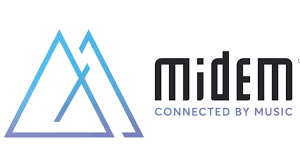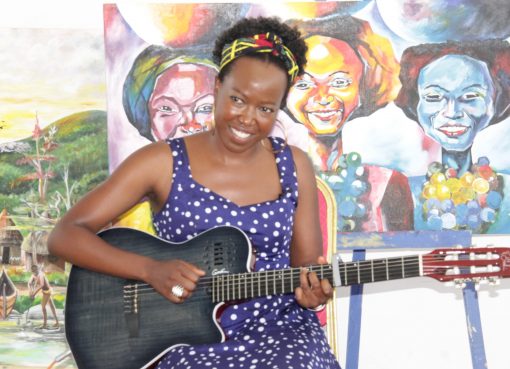A fortnight ago, Midem Africa launched the first Pan-African digital music event on their Digital platform in partnership with the Ministry of Sports Culture and Heritage and the Permanent Presidential Music Commission (PPMC).
The packed 4-day itinerary that took place between 28th-1st July comprised conferences, networking events, and live performances, music makers, cutting-edge technology companies, brands and talent who enriched the passionate relationship between people and allowed participants to seize new opportunities and learn from the conferences with key players in the international music community.
Midem is a French company that has opened new opportunities in Africa with a view of creating exposure to upcoming talent in the music industry.
Alexandre Deniot Director of Midem and the head of the Midem Africa new initiative opened the event that is dedicated to the continent’s most vibrant music markets, while mapping the African music industries and featuring Kenya as Country of Honour.
“Africa is a booming music market and now is the time for the global music community to invest in and take notice of what is happening in the continent as more international companies take an interest in the region. I am very excited to welcome Kenya as a country of Honour. It’s a very dynamic music market with incredible talent and we need to educate ourselves about local realities and the differences between one market to another rather than seeing Africa as one big block. It’s so important to highlight the continent right now with the works of African talent pushing boundaries and creating the sound of tomorrow” said Mr. Deniot.
Across the African continent artists are finding new ways to connect with fans and distribute their music aided by new technology and companies both local and global.
MRC Data`s Helena Kosinski VP Global VP lauded the role of Africa in the global music marketplace saying it brought communities together.
“There’s so much interest in African Music for good reason. The excitement is mainly about the potential. According to statistics from IFPI`s global music report from 2020, South Africa, and the Middle East, and North Africa(MENA) combined accounted for 86.7% of the region’s revenue.
Prediction for African Music majorly focusing on the demographic power of the continent is a fundamental aspect. The young people are a great asset. New music and pushing boundaries, developing musical styles comes predominantly from young people and it is only the beginning of a very exciting time. Africa is the next global growth engine and there’s huge potential.
Presentation by Magical Kenya, International Federation of the Phonographic Industry (IFPI) Director Sub-Saharan Africa Angela Ndambuki praised Kenyan Musicians tremendous potential and rich musical production saying they could create more job opportunities for upcoming entrepreneurs.
Music genres in Kenya is a sign of rich dive cultures. We have Benga, Kapuka, Gengetone, R&B, Afro-pop, Afro-fusion, Hip Hop/Rap, Chakacha, and Taarab just to name several popular genres.
The IFPI Director added that on today’s Music scene, major Kenyan artists are placing the country on the African and global Map. Leading is Sauti Sol the afro-pop boy band with 5 studio albums and from this we see the need to push Kenyan Music out there and the consumption and need for Kenyans to consume their music is high.
Ms. Ndambuki further highlighted that the expansion of Mobile broadband and fibre optic networks had enhanced internet access and smartphone usage. The recent launch of 5G technology by Safaricom in March this year is influencing consumption of music and also the internet growth driven by the National Broadband Strategy where the government waived taxes on for cheapest smartphones to stimulate access among more low incomers.
President Uhuru Kenyatta last year on January 13th requested that the Kenya Copyright Board (KECOBO) license digital platforms, possibly resulting in increased revenues for content creators. A move that will ensure broadcasters pay fair royalties stating the music market is worth at least USD 20 Million.
“These new measures will see the rise of tariffs collected and will create immense savings on the processes of collecting royalties,” said Mr. Kenyatta.
“Music consumption has evolved to digital platforms through subscription services offering streaming access through Spotify, Mdundo and Boom play, Mziki, Deezer, and Youtube. Coloring Back tone(CRBTs) services operated mainly by telco services Safaricom Skiza is the most successful in Sub Saharan Africa. M-Pesa has also eased artist royalty payments and payments on Digital Platforms” noted Ms. Ndambuki.
George Gachui, Co- Founder of MOOKH (Kenya) explained the areas of growth in the Music Industry in East Africa and Kenya.
“A lot of East-African efforts in the music industry have been country-based but right now through digital distribution, we are able to achieve that because our population is mainly young people.
In the next three years we are going to see a lot of innovation coming out of East Africa. At the moment we are working with about 1,000 artists from East Africa on the MOOKH platform and we are working on how they can better monetize their audience and learn who they really are” said Mr. Gachui.
With the current COVID-19 crisis and restriction of movement a lot of artists were dependent on live shows. The music industry is fighting back with new revenue structures and strategies to monetize music consumption. Prior to the pandemic, Kenya’s entertainment industry was on the rise, with government organizations such as the Kenya Copyright Board (KCB) and the Music Copyright Society of Kenya ramping up their fight against piracy to preserve artists’ livelihoods.
Director, East Africa Boomplay (Kenya) Ms. Martha Huro highlights opportunities available in Africa through Digital Music Consumption.
“There are business models for streaming services that can be used by artists to make money through premium service which is more popular because people use their data and they get money. There has been a high number of subscriptions from the data on our platform because we have made it easy for the audience to access music by making sure to incorporate all the currency from different countries and we have made affordable packages for our audiences. We have also tried to do content creation by play-listing so that you can also discover other artists as you listen to your music” said Ms. Huro.
Mr. Adipo Otieno from IFPI Kenya Regional Licensing & Policy Lead- Sub- Saharan Africa shares his outlook towards building a sustainable music industry.
“For us we look at digitization as an opportunity for our companies to expand and generate revenue in a proper and certain way and this is important because recently we have noticed in Sub- Saharan Africa there has been an influx on streaming apps and those that get into a contract with record companies are able to get what is of value to them” said Mr. Otieno.
As IFPI in Africa the current issue we are facing with digitization is online piracy that has also evolved from physical to online just as music consumption and this is a great threat for the digital level. Our data shows that there has been an increase of 30-40% of piracy when you look at Nigeria and Kenya in the duration of 2019-2020.
Mr. Otieno further added that the issue of policy is also important to us both at the national and regional level and IFPI has currently championed a discussion around the continental Africa Free Continental Trade Area (AFCTA) agreement and we are currently chairing the National Chamber of Commerce Committee which is bringing together key stakeholders and we want to have cross border discussions with other countries that we may engage to have discussions around standardizing IP practices across the continent and that will be key to advancing the Pan-African music industry.
Midem is Home of the Global Music Community and it is the world’s leading music business event, which unites, connects, serves and supports the global music ecosystem to exchange, create, play, forge relationships and shape the future of the industry.
Since 2018 Midem has been supporting the structuring and professionalization of the music industry and building bridges within our communities and has made partners across Africa and been blown away with its incredible music scenes. In just three years Midem has been to seven African Countries (Cameroon, Nigeria, Senegal, Ivory Coast, South Africa, Republic of Congo and Gabon) and hosted ten local events with panel discussions, networking sessions and artist showcases.
“As Midem we are here to connect people all around the world by Music since 1967. We have more than 13,000 members from 150 countries and 50 countries already on our digital platform and we provide the best of face to face and digital and it is free and open to all” concluded the CEO Mr. Deniot.
By Lydia Shiloya





